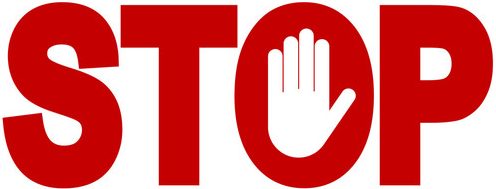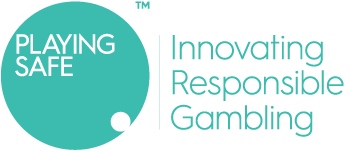Responsible gambling guide
 Most people who gamble do it recreationally and within their limits but for some it can become a destructive habit that negatively impacts their life. A 2017 study by the NJ Gambling Commission says more than two million people in the NJ either have a problem with gambling or are at risk of addiction, including roughly 430,000 who already have a serious habit. Gambling responsibly is about knowing your limits, playing within them and staying vigilant for urges and behaviours that cause problems in your life.
Most people who gamble do it recreationally and within their limits but for some it can become a destructive habit that negatively impacts their life. A 2017 study by the NJ Gambling Commission says more than two million people in the NJ either have a problem with gambling or are at risk of addiction, including roughly 430,000 who already have a serious habit. Gambling responsibly is about knowing your limits, playing within them and staying vigilant for urges and behaviours that cause problems in your life.
In this article we’ll explain exactly what problem gambling is and how to tell if you or someone you know is at risk or already has a gambling addiction. We’ll also provide information about the organizations and resources in the NJ that help people treat compulsive gambling habits and help people gamble responsibly.
Table of contents
What is Problem or Compulsive Gambling?
Problem gambling is sometimes referred to as a gambling addiction, compulsive gambling or by its technical name, ludomania. Whatever you call it, it’s an urge to make wagers even though continuing to do so has negative or harmful consequences. A diagnosis of gambling addiction often focuses on the gambling’s negative effects, either on the gambler or those around him, as opposed to the gambler’s specific behaviours.
Compulsive gamblers run the spectrum from those who lose a bit more money than they want to once in a while, to people who have serious addictions that can destroy their lives. The negative impacts on the gambler can include financial, social and family costs. That’s why is so important to seek help as soon as gambling is not fun anymore. Even though, you might not have a problem, others might. Therefore, it’s better to get familiair with the symptoms and the programs at hand that can help those in need.
Signs Someone Has a Destructive Gambling Habit
Psychologically speaking, compulsive gambling is thought to be really similar to other forms of addiction like drugs and alcohol. According to the American Psychiatric Association, the signs of gambling addiction are:
- A need to wager more and more to get the required level of excitement
- Restlessness and irritability when trying to cut down or stop gambling
- Many unsuccessful attempts to control or stop gambling
- Often distracted by or preoccupied with gambling
- Gambles more when upset, anxious, distressed
- Often follows losing sessions with more gambling in an attempt to recoup losses
- Lies to conceal gambling behaviour
- Has lost or put at risk a serious relationship, job, education or career opportunity
- Borrows money in order to gamble or manage financial problems caused by gambling
If someone displays at least four of these criteria in a one-year period they may be diagnosed as a pathological gambler.
Treatments for your Problem Gambling
 Problem gamblers are more likely to suffer from depression, anxiety and low self-esteem and are also statistically more likely to go to prison, usually as a result of theft or fraud. That’s the bad news. The good news is that gambling problems can be successfully treated. Treating people with compulsive gambling habits is usually much the same as treating those who are dependent on substances. Common forms of treatment include cognitive behavioural therapy and counselling, step-programs like Gamblers Anonymous, medication, peer-support or a combination.
Problem gamblers are more likely to suffer from depression, anxiety and low self-esteem and are also statistically more likely to go to prison, usually as a result of theft or fraud. That’s the bad news. The good news is that gambling problems can be successfully treated. Treating people with compulsive gambling habits is usually much the same as treating those who are dependent on substances. Common forms of treatment include cognitive behavioural therapy and counselling, step-programs like Gamblers Anonymous, medication, peer-support or a combination.
Addiction is usually a progressive problem, meaning if left untreated it will get worse. The first step towards treatment is opening up about it if you think you have a problem. If you don’t feel comfortable talking to someone close to you, speak to a therapist who specializes in addiction. Many therapists offer free consultations to find out if you should consider counselling or other forms of treatment.
UK Resources to Get Help with Problem Gambling
There are tons of resources in the UK set up to help people struggling with problem gambling. If you’re unhappy about the role gambling plays in your life, it is possible to change it. It might be scary at first but you or the person involved suffering from gambling addiction, will benefit greatly from therapy. Take the first step and reach out to one of the groups below:
- Gamblers Anonymous – One of the easiest ways to take the first step if you think you have a gambling problem is to visit a GA meeting. It’s free, anonymous and participation is 100% voluntary. You can go, sit in the back and just listen. GA is a steps program which means you will follow a proven system of steps designed to overcome the addiction. Step-programs also offer the benefit of other people’s experiences with gambling addiction and getting clean.
- GamCare – The UK’s biggest provider of free information, advice and counselling dealing with problem gambling. GamCare has tons of great resources like a free self-assessment tool, a live chat tool that lets you talk to an adviser, a forum and chatroom for people to share and learn from each other’s experiences and even online and face-to-face counselling.
- Gambling Hotline – GamCare’s free hotline which provides advice and information for gamblers seeking help. It’s free to call from landlines and mobiles in the NJ and it won’t appear on your itemized phone bill. It’s anonymous and confidential and allows you to speak directly with an adviser who is trained to listen and help people affected by problem gambling. More information on the hotline can be found on GamCare’s website.
- National Problem Gambling Clinic – A service run by the NHS, this clinic is located in London and provides therapy, support groups, psychiatric reviews, medication and aftercare. Call or email them to set up a free phone consultation.
Self-Exclusion from Online and Live Casinos
For some people gambling is a safe, recreational activity but if you’re worried about your gambling behaviour, take the first step and reach out to someone for help. One major tool for people who are struggling to control their gambling behaviour is called self-exclusion. Also called self-banning, it’s when a gambler requests for casinos to refuse them service for a set amount of time. You can self-exclude in brick and mortar casinos as well as online casinos. It can be a way to help quit gambling completely or to take a break.
Sometimes people choose to self-exclude themselves from a casino that’s really close to where they live or work, a casino where they had a particularly big win or one where they really like the staff or games. You can self-exclude from a specific casino or website by contacting them directly, or self-exclude from all land-based casinos or casino websites via a number of different schemes. Here are the main ones in the UK:
Casino ‘Sense’ Program – Self-exclude from all NJ land-based casinos:
http://www.playingsafe.org.uk/sense-information (Information)
http://www.playingsafe.org.uk/downloads (To enroll)
To exclude from more than one bookmaker/betting shop, call 0800 294 2060.
Opt-In to Self Exclude: http://optintoselfexclude.info/home/
Self-exclusion from NJ bingo venues: https://www.bingo-association.co.uk/site/bing/templates/selfexclusion.aspx?pageid=181&cc=gb
Self-exclude from more than one online casino: https://www.rga.eu.com/gamstop-announced-as-the-brand-name-for-uk-national-online-self-exclusion-scheme/
